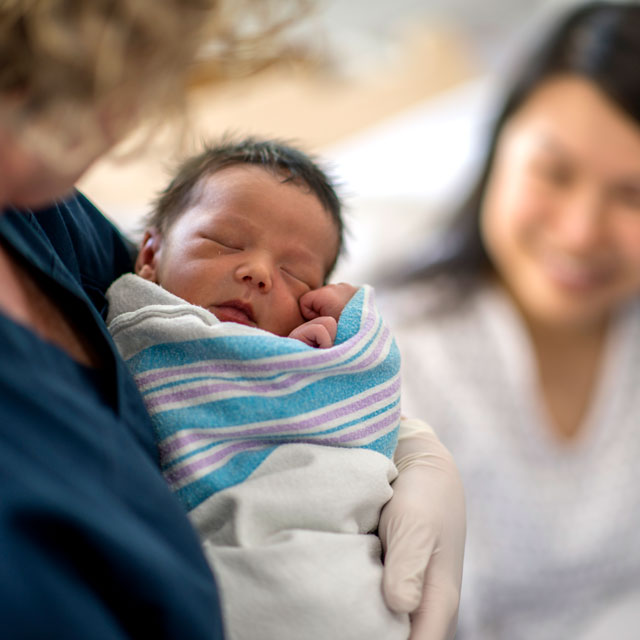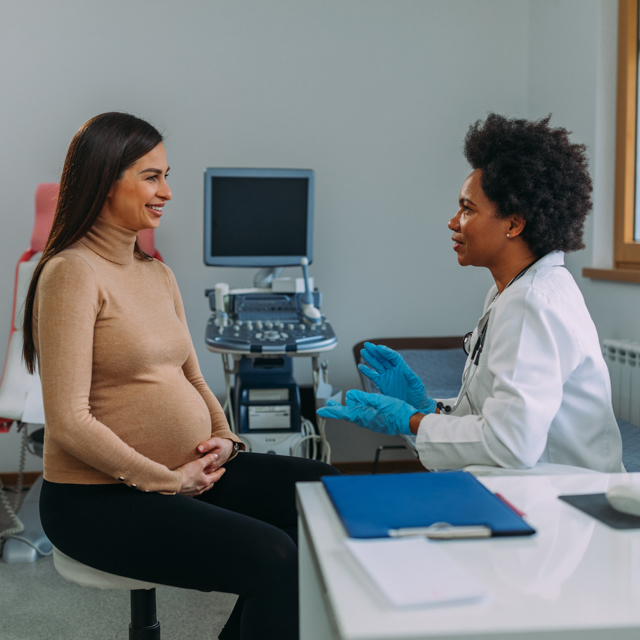Is getting pregnant taking longer than expected? A Vanderbilt expert answers some common questions.
Trying to get pregnant is fun, right? Not for everyone. About 9% of men and 11% of women of reproductive age in the U.S. have experienced problems with infertility. After one year of regular intercourse without contraception, 12-15% of couples are unable to conceive. This process can be frustrating and heartbreaking for couples who have to ask themselves, “Why are we not getting pregnant?”
There are many more questions these couples may be asking themselves, from identifying symptoms and signs of infertility to the tests and treatments that are available. Dr. Michelle Roach of Vanderbilt Reproductive Endocrinology and Infertility answers some common questions about fertility.
First things first: When should I start to worry about infertility?
“Often, there may be no signs or symptoms of infertility,” Roach said. “Most couples don’t get diagnosed with infertility until they have been unable to conceive after attempting naturally.”
Infertility is defined as the inability to conceive after one year of regular intercourse without contraception in women under 35 and 6 months in women over 35. “If there is a known reason for infertility, such as irregular periods or a hormonal disorder, one should seek care right away,” Roach said.
Irregular or absent menstrual cycles may be a sign you are not ovulating, and you may benefit from earlier intervention with fertility treatments.
Are there any lifestyle changes we should make or watch out for?
“First, we recommend that our patients stop smoking,” Roach said. “Smoking is associated with poor sperm quality, loss of eggs, early menopause, lower pregnancy rates and increased chance of miscarriage.” (Read about strategies to quit smoking here.) “Heavy alcohol consumption and the use of recreational drugs can lower the chance of pregnancy,” she added.
“It is also important for men and women to maintain an overall healthy weight,” she said. “Being overweight or underweight may increase the chance of infertility.”
High temperatures may affect sperm count and shape. “The effect of boxer underwear is inconclusive; however, it is best for men to avoid high temperatures such as hot tubs, saunas and computers on your lap,” Roach said. Antioxidants such as vitamins E and C may increase sperm count and movement.
Can caffeine hurt my chances of getting pregnant?
“With such widespread consumption of caffeine, the potential health impact of caffeine use cannot be underestimated,” Roach said. “Multiple studies have suggested that caffeine consumption increases the risk of miscarriage.”
Women consuming greater than 200 mg of caffeine per day may have twice the miscarriage rate. Women who drink more than one cup of coffee a day are half as likely to become pregnant per month as compared to women who consume less. Patients undergoing in vitro fertilization who consumed even modest amounts of caffeine were likely to have decreased live birth rates.
How does age affect infertility?
“In women, increasing age is associated with a lower chance of pregnancy and a higher risk of miscarriage,” Roach said. “This is due to the declining in egg quality with increasing age.”
A woman’s risk of miscarriage at age 40 is about double the risk at age 35. If you are 40 or over and trying to conceive, you should seek medical care right away.
What are the chances my husband is the source of infertility?
There is about a 35 percent chance that a male partner will have a problem that contributes to infertility. “We use a semen analysis to assess the physical characteristic of the sperm, such as count, shape and movement,” Roach said.
Since the cycle of sperm production lasts approximately 70 to 80 days, an acute illness or exposure to toxic substances during this time may have adverse consequences on an isolated semen analysis. “Abnormalities of the semen analysis should be confirmed by repeat testing on two or more occasions,” Roach added.
Are there other tests that can check for infertility?
Your clinician may recommend additional testing to check the function of the fallopian tubes, and/or blood work to check your hormone levels. “It is common to check thyroid function and obtain testing to assess the number of eggs that remain, which we call ‘ovarian reserve,’” Roach said. Importantly, ovarian reserve does not correlate with ability to conceive, but will instead let your clinician know how your ovaries may respond to fertility medications.
What are some options if we’re having problems conceiving?
“Some couples may benefit from oral medications to assist with ovulation,” Roach said. “Intrauterine insemination, or IUI, is also a common fertility treatment. IUI can be considered for patients with unexplained infertility, when oral medications alone won’t work, or in cases of mild abnormalities with a semen analysis.”
“In vitro fertilization, or IVF, can be considered when other fertility treatments fail — and some couples elect to start with IVF,” Roach said. “In many cases, IVF will give the highest chance of conception as compared to other fertility treatments.”

Expert care for you and your baby
Each pregnancy and delivery is unique and yours should be too. Learn more about how Vanderbilt Health’s obstetrics and maternal fetal medicine teams bring together nationally ranked expertise and personalized care from your first prenatal visit to delivery and beyond.
To learn more, call 615-343-5700 or schedule an appointment online.




